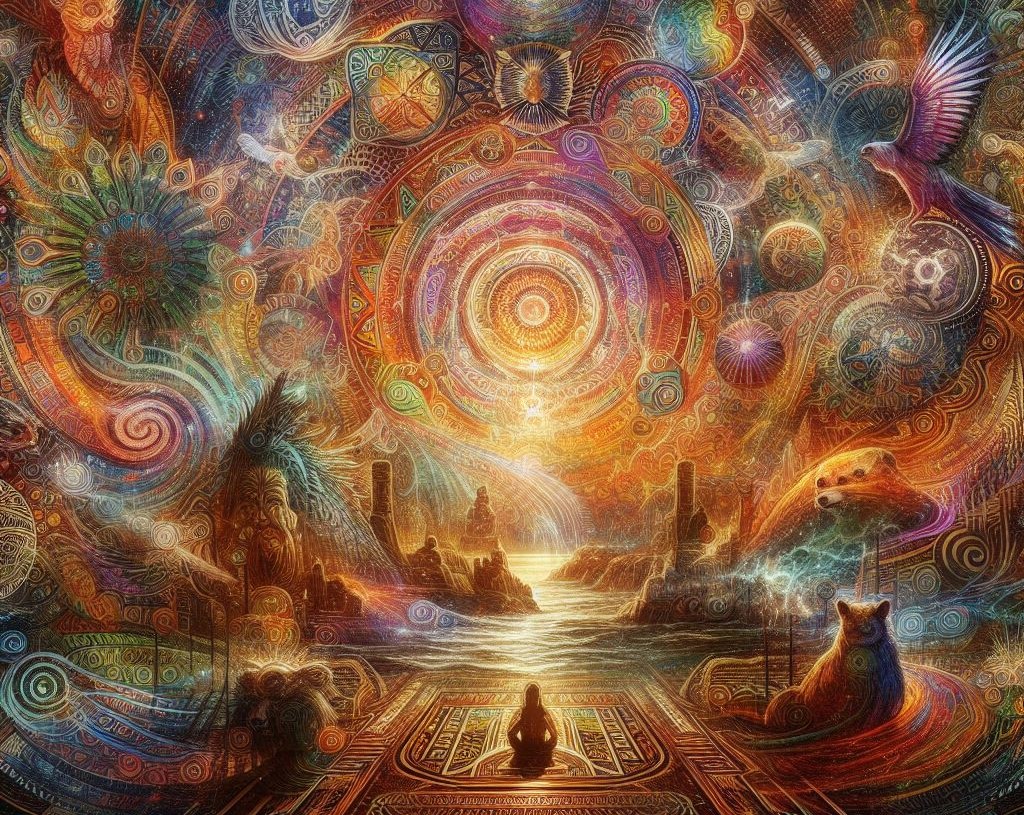Having worked with ancestral medicines for a good while now in Ecuador, Mexico, and Peru, I’ve had my fair share of experiences with Ayahuasca.
Whether these experiences were drinking the medicine myself, assisting in ceremonies, or helping people through their integration, I’ve learned a lot about this powerful medicine, and also about the misconceptions that many people have about it.
Some people believe that Ayahuasca is simply a mind-altering drug. Others believe that one sitting will change your life forever. You hear all sorts of wild stories about this medicine, so what’s really going on here?
Well, that’s what I want to clear up in this article.
I’m going to address some of the common misconceptions that people have about Ayahuasca based on my experiences working with the medicine, and helping many people through their processes.
Ayahuasca is dangerous
Generally speaking, ayahuasca is safe. After all, it’s a medicine, but there are also a lot of variables here.
Are you a healthy adult with no history of mental illness? I would be very surprised if something went wrong. If you have a serious heart condition or something alike, ayahuasca might be a little riskier as it puts your body under a lot of stress.
But if there’s no cause for concern, you’ll be fine. Just make sure you’re drinking pure medicine at a reputable place. Most issues come not from the medicine itself, but from other people with bad intentions.
Ayahuasca is a recreational drug
Ayahuasca is not a reacreational drug. In medicine circles, you’ll probably get some dirty looks if you call it a drug as it’s considered disrespectful.
Ayahuasca is a medicine (or spirit), and it’s traditionally used in shamanic ceremonies with the intent to heal and grow. It is not intended for recreational use and should be approached with respect and intention.
Even though you can have enjoyable experiences, often the ayahuasca experience is difficult and involves purging (vomiting, diarrhea, sweating, etc.)
Ayahuasca causes psychosis
If you have no history of mental illness, Ayahuasca cannot cause schizophrenia or psychosis. Ayahuasca can however trigger or onset preexisting conditions which can lead to psychosis.
Ayahuasca can make you feel very ungrounded though, both within the ceremony and for some time afterwards. If your mind is already in the sky, I would avoid ayahuasca as it might make you disassociate a little.
It’s best not to mess around with these medicines unless you’re confident that you have no preexisting mental illness. I met someone who was broken by the medicine as he decided not to tell the facilitators that he had bipolar. Believe me, you don’t want to end up like him, so be transparent if you’re seeking out the medicine.
You can mix Ayahuasca with other medicines
Do not take Ayahuasca if you’re under the influence of drugs or medications. Although some medications are okay, others can be deadly if used in conjunction with ayahuasca, so you need to be very cautious about this.
Always be transparent with the facilitator or center where you’re planning on taking the ayahuasca, and disclose anything you’re taking.
I would avoid drinking alcohol or coffee in the days leading up to the ceremony. Mixing other plant medicines with Ayahuasca such as cannabis or psilocybin may not be dangerous, but I heavily advise against it as these other energies can interfere with Ayahuasca and have consequences.
Ayahuasca is a religious experience
Ayahuasca is a spiritual medicine and doesn’t fit in any religious box. The healers who work with ayahuasca are shamans who each have their own beliefs, but it’s not a religion.
I’ve worked with people who were Muslim, Christian, Hindu, Buddhist, and people who follow just about every religion out there. But those people also happened to be open-minded (otherwise they probably wouldn’t take Ayahuasca) and understood that the belief system doesn’t matter.
Ayahuasca causes permanent changes in your life
A common misconception is to believe that one ceremony will create drastic, permanent changes in your life. Many people who take the medicine don’t really experience anything at all.
What everyone gets out of Ayahuasca is personal, but common long-term effects include changes in perception and belief systems, a deeper connection with spirit, the emergence of healthier habits and lifestyles, and a higher sense of inner peace and fulfillment.
Look at it as if ayahuasca sows the seeds, but you need to water them. Don’t expect to walk out of a ceremony as a different person.
Ayahuasca always leads to positive change
Ayahuasca does not always lead to positive change. For some people, it has the opposite effect, however, this is usually when they resist what the medicine is trying to show them, or disrespect it.
Ayahuasca does have the potential to retraumatize people and cause more issues than they came in with. But this happens on rare occasions. The vast majority of experiences with Ayahuasca create positive change.
Just be open to the medicine, and don’t resist the experience.
You need integration after taking ayahuasca
Formal integration can help some people after taking ayahuasca, but it’s not necessary for most. Integration coaching is a pretty Westernized addition to plant medicines and is primarily focused on people who don’t have a whole lot of experience with plant medicines.
Generally, people integrate on their own. Spend plenty of time by yourself. Meditation. Slow down. Reflect. Taking your own time to integrate should do the trick, and help you bring the teachings of the medicine into your daily life.
Integration work may be necessary for people who were shaken up by the medicine or left feeling confused and disorientated.
If this is you, I’ve written an article on the best integration practices which you can find here:

